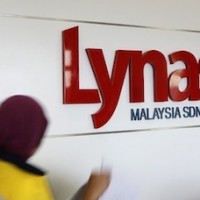Yet more public support of the Lynas Advanced Materials Plant has come to light – adding weight to the position of the countless independent experts who have already declared the plant safe.
The Chief Executive Officer of the Academy of Science Malaysia (ASM), Dr Ahmad Ibrahim, has said that the plant at Gebeng, Pahang houses no obstacles or technical errors that could impede the safe delivery of the huge new source of income for the country.
“ASM research found that there were no technical problems for Lynas to operate because sources which would be processed from China and Australia are the same sources which had been processed at the 50-year factory in France.”
It’s an interesting comparison.
La Rochelle, of France’s Rhodia group, is a pioneer in the rare earth business in Europe.
It is a leading processor of the materials, selling rare-earths-based formulations for use in catalytic convertors, light bulbs and other value-added industries such as optics and flat-screen televisions.
In fact, it’s the world’s only fully-integrated industrial player to have manufacturing operations and raw material supply both within and outside China.
And the thorium residues that have stirred so much sentiment here have been stored within the plant’s 40-hectare site there for the past 50 years.
During storage, the residues are regularly monitored by the country’s regulatory authority, the equivalent of our Atomic Energy Licensing Board (AELB).
“Imagine that the factory has operated nearly 50 years in the tourism city, La Rochelle, in France, and is still strong and certified as safe … the factory in Gebeng is using similar technology,” he said on Wednesday.
And through the deployment of the same stringent health and safety standards that are planned at the LAMP site, the La Rochelle plant has had no adverse effect on the local community.
Indeed it has had quite the opposite, contributing to the local economy not only in terms of job opportunities but also tax revenues.
And yet the hue and cry over the plant doesn’t seem to want to disappear – at least not while any public criticism could lend some sort of weight to the Opposition’s efforts for GE13.
This is despite the recent announcement that AELB assured that Lynas would agree to remove any residue from the country that could not be turned into a commercially viable product.
No reputable scientist in Malaysia or abroad has given any support to the strained and increasingly rabid objections that Opposition has offered, but they have nevertheless clouded the judgement of those living nearby.
It is up to Lynas now to move ahead with its safe, successful and sustainable plant to really put the politicking behind us.

